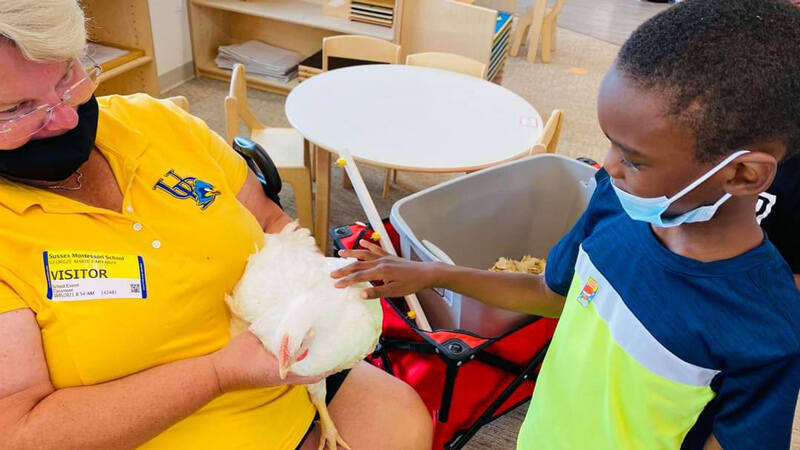Sussex Montessori school in Seaford, Delaware: youtube.com/watch?v=kdJ8x1V-Y9k
UD Cooperative Extension builds an outdoor classroom for Seaford school children
A crisp, sunny day in early March served as the perfect climate backdrop for productivity and community bonding. Cooler temperatures made for excellent construction weather for the University of Delaware Cooperative Extension team’s task of building raised garden beds at Sussex Montessori School in Seaford, Delaware.
In numerous visits to the Seaford school since 2019, UD Extension staff built 12 beds and created activities that helped elementary school students grow and taste vegetables. Drawing from a deep bench of Master Wellness (formerly Master Food Educators) and Master Gardener volunteers and community partners, Extension created a new outdoor science laboratory. The raised beds will soon sprout vegetables in front of new classrooms for students in grades four through six.
Extension funds and a specialty crop block grant from Healthy Foods for Healthy Kids provided resources for garden beds and education for the students and teachers to grow their knowledge around healthy foods.
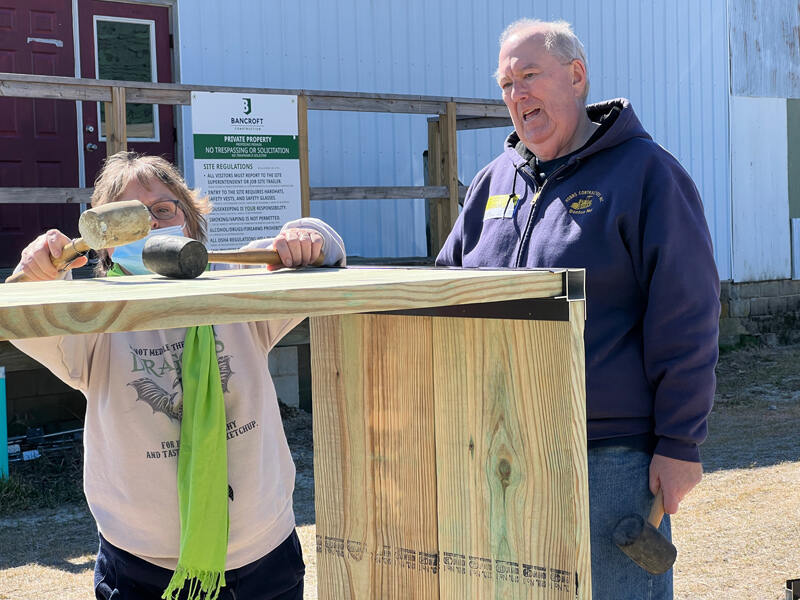
Working with UD Extension staff were Master Wellness volunteer and school and community garden coordinator Lynne Betts, Master Wellness Volunteer Dan Towers and Master Gardener Beth Kopicki. Additionally, George Hignutt and Jeremy Joseph from agricultural equipment dealership Hoober, Inc., saved the team a great deal of shoveling, using a skid loader to fill the beds with rich garden soil.
With four new beds installed in March, UD Extension completed an even dozen raised garden beds for the Seaford school — a vision that began in 2019.
“Sussex Montessori School has been a partner since 2019 when we had the opportunity through SNAP-Ed funds to support a school or community garden in Sussex County, specifically in Seaford — an area of focus for our healthy community work,” said Gina Crist, a community health specialist with UD Extension. “SNAP-Ed focuses on increasing access to healthy foods for individuals who are eligible for or receive SNAP benefits.”
By the early summer of 2021, eight completed raised beds sat outside classrooms, ready to be filled, irrigated and producing vegetables. Students delighted in their roles as participants, happily pulling wagons, handling tools and participating in the construction. The next phase was even more fun — planting seeds and understanding how sun, soil and water turn them into something good to eat.
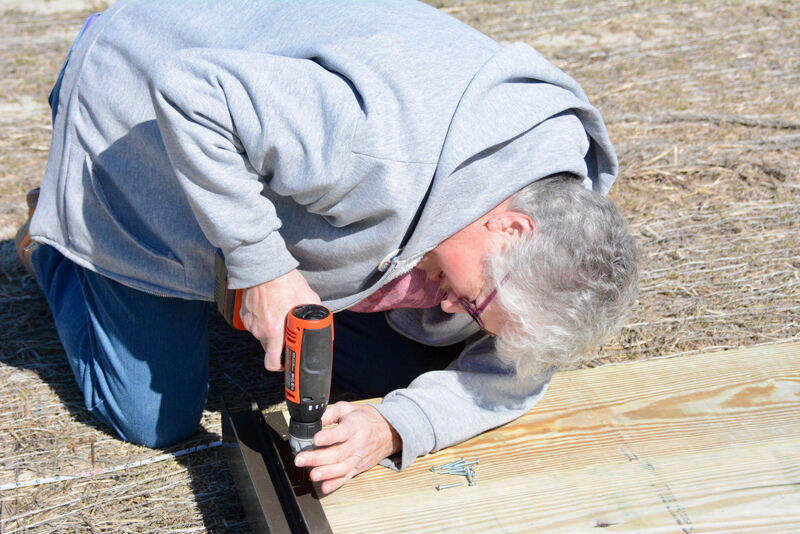
While Betts served as the project’s coordinator, Tracy Wootten, Sussex County horticulture agent, provided the raised-bed know-how.
“Being able to rely upon our expert volunteers is a blessing,” Wootten said. “They’ve built raised beds in our demonstration garden at the UD Carvel Center in Georgetown, at home and given workshops for the public on the subject. We were able to take photographs of the step-by-step process so that today’s construction moved along quickly.”
In the two months following construction, Extension will add drip irrigation to the beds, which saves water and nutrients by allowing water to slowly drip to the roots of plants.
An Extension-wide effort
Sussex Montessori’s relationship with Extension didn’t stop with the raised beds. Delighted by the transformation and student involvement, the school rolled out the welcome mat to Extension’s full breadth of programs including family and consumer science, lawn and garden, agriculture, and 4-H youth educators.
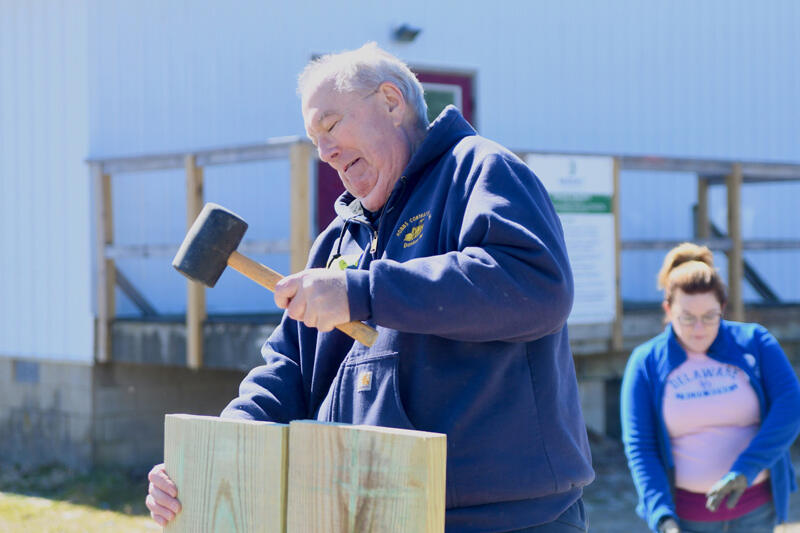
Involving 4-H was a natural choice. The largest youth-development program in the world, 4-H programs reflect all areas of Extension outreach. Jill Jackson, a Sussex County 4-H educator, originally met with the school’s principal, Lisa Coldiron, to discuss hosting monthly 4-H outreach for the 2021-22 school year. Plans to return for the 2022-23 term are already on the calendar.
“In November, all students received lessons about kindness and giving back,” said Jackson.
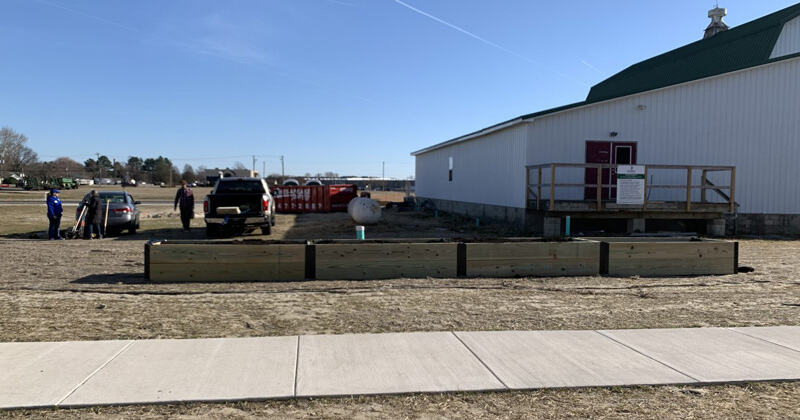
The lesson’s tied in with 4-H’s strong emphasis on their community service curriculum. The students also enjoyed learning about Ozobots, tiny robots that work by sensing particular color patterns of red, blue, green and black to do various tasks.
“The students loved making their own color patterns to let their robots spin, turn and speed up,” Jackson said.
Embryology, another 4-H project area, provided Jackson with an opportunity to invite Georgie Cartanza, poultry agent, to present to all grades.
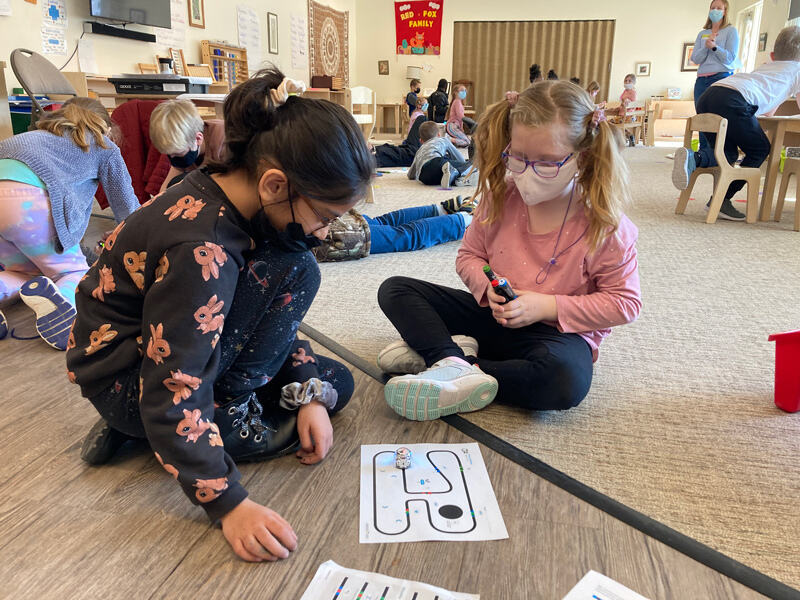
Jackson also coordinated with the school’s gym teacher on one of the program’s four H’s — health. She will involve current 4-H members to bring their farm animals on campus. In May, David Owens, an extension specialist in entomology, will lead a workshop on insects and their role in food production.
The ongoing effort is music to the ears of Thianda Manzara, founder and CEO of Healthy Food for Healthy Kids.
“We’ve been working with schools to start vegetable programs in support of science curriculum, mostly in New Castle County. Recently, we moved into Sussex County and we’re so thrilled to be working with Cooperative Extension on this project,” Manzara said. “If the students grow their own vegetables, they are much more likely to eat them.”
Jon Otto, a fourth-grade teacher and coordinator of the garden project, agreed. He said he believes students need to get outside in nature. He contends that students getting their hands in the soil is as healthy for their minds as eating vegetables is for their health.
“The students participate in preparing the soil, sowing the seeds and the harvesting and winterizing the beds,” said Otto. “The kids love it.”
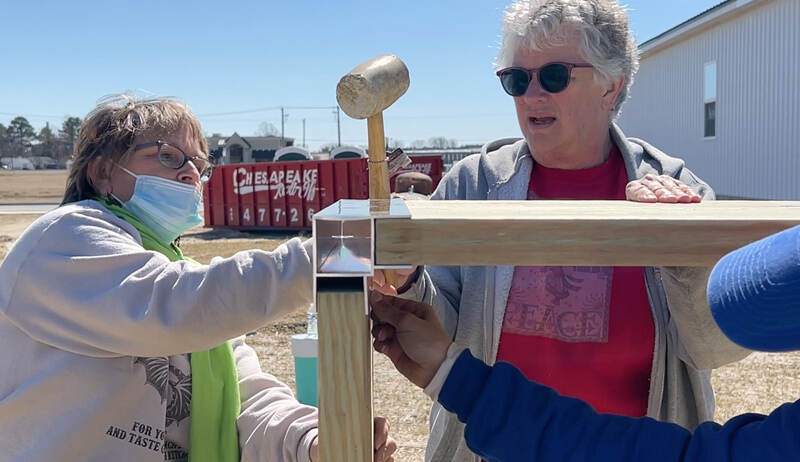
Growing the vegetables was an eye-opening discovery for the students.
“Not everyone knew they could eat beet greens, mustard and collard greens and put them all together in one batch,” Otto said. “That was a big hit. They even made their own sauces for it.”
As the project grew, so did everyone’s enthusiasm and ideas. Youth entrepreneurship may lie right around the corner. Otto remarked on the productivity of the first beds.
“It was the biggest harvest I have ever seen in a school garden because they have it down to a science,” Otto said. “Our students will be growing food, cooking it and maybe selling it.”
